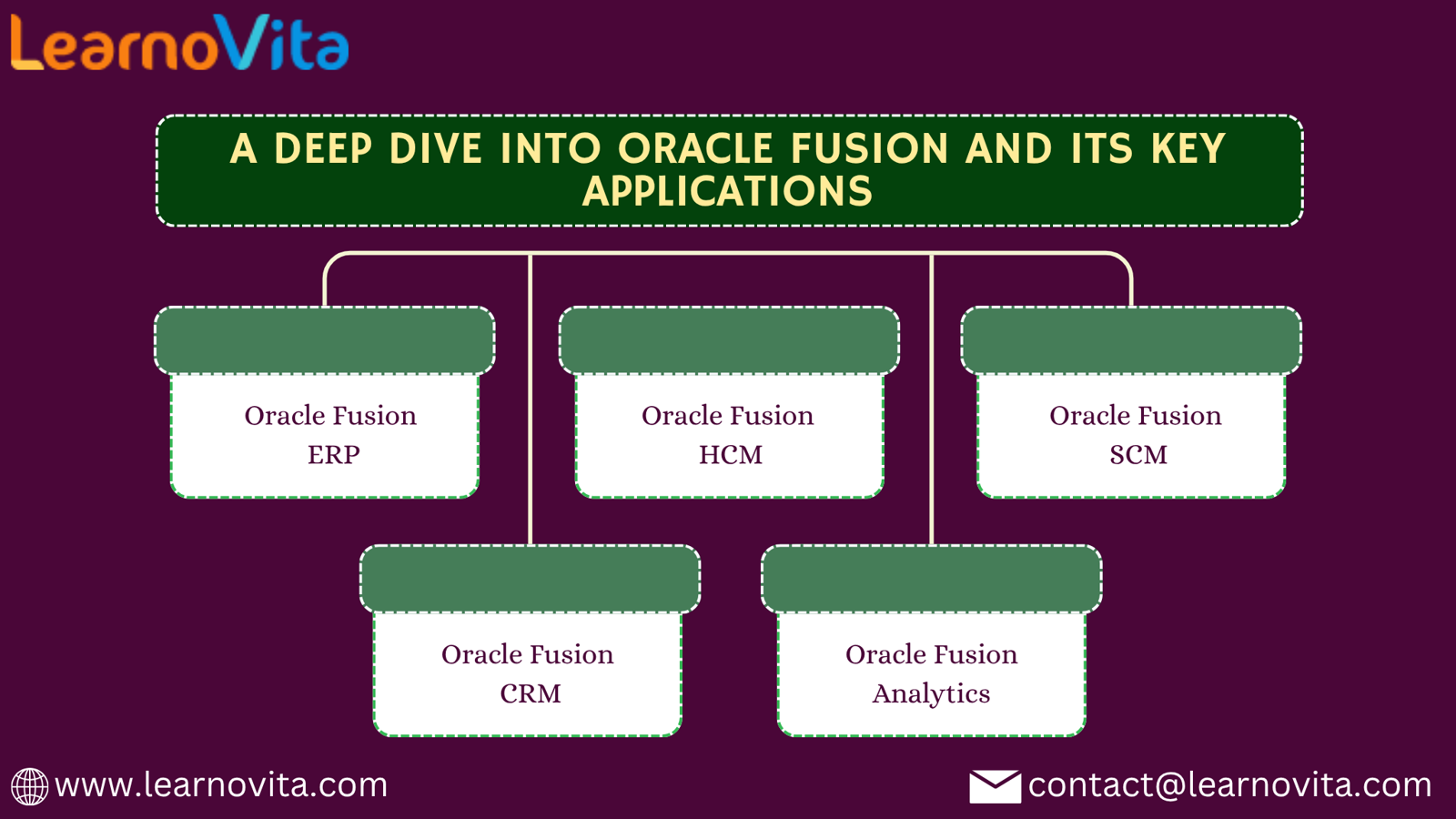Exploring Oracle Fusion: A Comprehensive Overview of Its Applications
- Get link
- X
- Other Apps

What is Oracle Fusion?
Oracle Fusion is a unified suite of applications that integrates various business processes into a single platform. It combines the strengths of Oracle’s existing product lines, including enterprise resource planning (ERP), customer relationship management (CRM), human capital management (HCM), and supply chain management (SCM). The primary goal of Oracle Fusion is to empower organizations with tools that enhance collaboration, data visibility, and operational efficiency.
Key Components of Oracle Fusion Applications
1. Oracle Fusion ERP
Oracle Fusion ERP provides organizations with comprehensive financial management capabilities. It streamlines processes such as accounting, procurement, and project management. With features like real-time analytics, automated workflows, and enhanced reporting, Oracle Fusion ERP enables businesses to make informed decisions quickly, improving overall operational efficiency.
2. Oracle Fusion HCM
The Human Capital Management (HCM) component focuses on optimizing the employee lifecycle. Oracle Fusion HCM offers tools for talent acquisition, performance management, and workforce planning. By leveraging advanced analytics, organizations can gain insights into employee performance and engagement, helping to attract, develop, and retain top talent in a competitive job market.
3. Oracle Fusion SCM
Oracle Fusion SCM enhances supply chain processes by providing visibility and control from procurement to delivery. This module covers inventory management, logistics, and demand forecasting. By optimizing supply chain operations, businesses can reduce costs, improve service levels, and respond more effectively to market changes.
4. Oracle Fusion CRM

5. Oracle Fusion Analytics
Oracle Fusion Analytics empowers organizations with powerful data insights across all business functions. It provides advanced reporting and visualization tools, enabling decision-makers to track key performance indicators (KPIs) and make data-driven decisions. The ability to analyze data in real-time helps businesses respond quickly to trends and changes in the market.
Benefits of Oracle Fusion Applications
1. Seamless Integration
One of the standout features of Oracle Fusion is its ability to integrate various business functions seamlessly. This integration reduces data silos and fosters collaboration across departments, enhancing overall efficiency.
2. Scalability
As a cloud-based solution, Oracle Fusion can easily scale to meet the needs of growing organizations. Whether you’re a small startup or a large enterprise, the platform can adapt to your requirements.
3. User-Friendly Interface
Oracle Fusion is designed with a modern, intuitive interface that enhances user experience. This reduces the learning curve for employees, allowing them to become productive more quickly.
4. Real-Time Insights
With built-in analytics and reporting capabilities, Oracle Fusion provides real-time insights into business performance. This allows organizations to make agile decisions based on current data, ensuring they remain competitive in a fast-paced environment.
5. Cost Efficiency
By leveraging cloud technology, Oracle Fusion reduces the need for extensive IT infrastructure, lowering maintenance costs. Organizations can focus their resources on strategic initiatives rather than day-to-day IT management.
Conclusion
Exploring Oracle Fusion Applications reveals a comprehensive suite of tools designed to enhance business operations. By integrating ERP, HCM, SCM, and CRM capabilities, Oracle Fusion empowers organizations to streamline processes, improve collaboration, and make informed decisions.
As businesses continue to navigate the complexities of digital transformation, Oracle Fusion stands out as a vital solution for driving efficiency and growth. Whether you are considering adopting new software or enhancing your existing systems, Oracle Fusion Applications may hold the key to unlocking your organization’s full potential.
- Get link
- X
- Other Apps

Comments
Post a Comment